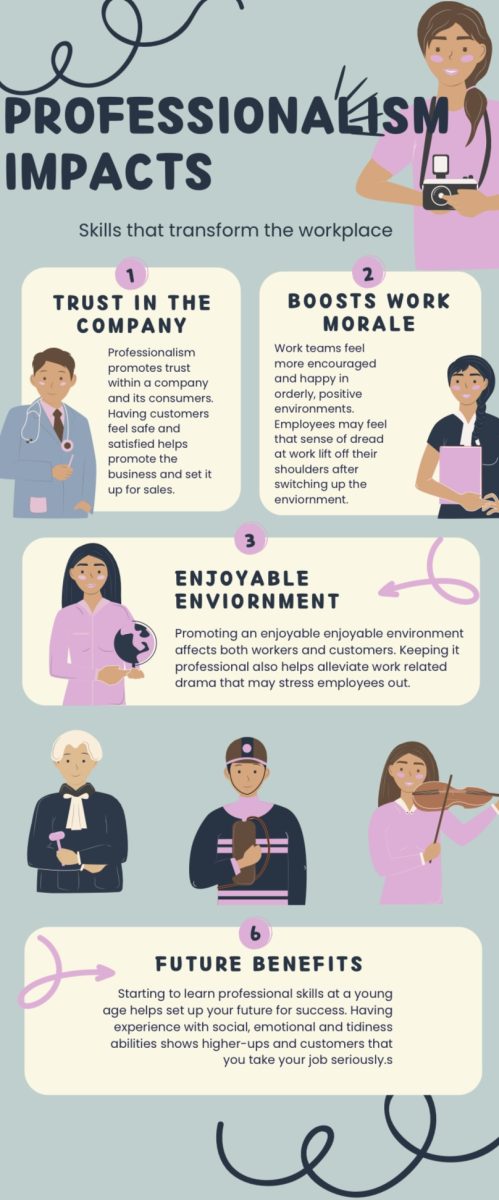From work to home, professionalism and its value change industries and job titles. Statistics show professionalism in the workplace’s significance when it comes to boosting work morale to raising customer trust.
According to a survey by the Society for Human Resource Management (SHRM), “92% of HR professionals believe that professionalism is crucial for career success,” this means showing responsibility, integrity and excellence. Whether it’s something as small as wearing a uniform, to something larger like knowing customers by name, these all contribute to making the workplace a more trustworthy, professional place. An article by PrudentialUniforms highlights the importance of telling an employee and customer apart based on uniform. Uniforms help signify a unity within the building of people willing to help. Employees that contribute to satisfying customer needs help create a better overall environment at work.
A study by Harvard Business Review found that 86% of employees and executives link professionalism directly to business outcomes. A study done at Harvard University tested how people connect perceptions of professionalism to what a worker’s desk looked like. Participants were asked to create a desk based on certain descriptions of job professionals. The first description explained the recruiter being a family man, while also being professional. The participants included family photos, plants and organized materials along the desk. In the second description, the recruiter was described as being unprofessional. The participants drew clusters of disorganized materials and random matter along the desk. The conclusion showed that a more organized workspace makes people more drawn to the job, rather than having a chaotic workspace.
But professionalism is more than just dressing the part or having tidy skills. At its core, professionalism promotes integrity, respect, accountability and a commitment to excellence. It’s the glue that holds work teams together and pushes individuals towards their goals. Endorsing professionalism helps set workers up with more experience for their futures. Professor Nada Heikal from the University in Cairo explains how to start developing professional skills at a young age, such as creating to-do lists or cleaning lists at work, limiting screen usage and avoiding gossip. For younger employees, it is important to set yourself up for future success by excluding yourself from work-related drama and distractions. In some cases, gossiping can become such an issue that it detriments a workers reputation, and may result in them getting fired.
In our big world where competition is fierce and reputations are everything, professionalism acts as a beacon of trust from clients to employees. Clients are more likely to engage with businesses that exude professionalism, leading to increased customer satisfaction and loyalty. A study by Forbes Insights revealed that 61% of customers are more likely to make a purchase from companies perceived as trustworthy. This might mean showing personality and reliability instead of going through the motions at work. Although work may be dreadful for some, creating a positive space impacts everyone.
Moreover, professionalism is the all-being of effective leadership. Leaders who embody professionalism inspire trust and confidence among their teams, driving employee engagement and a team bond. A story published in the National Library of Medicine found that employees who perceive their leaders as professional are more satisfied with their jobs and exhibit higher levels of organizational commitment, leading to an increase in business sales and overall customer-employee satisfaction.
Professionalism isn’t just a non-negotiable asset in today’s workplace. It drives business success, promotes healthy work cultures, and cultivates strong leadership. As organizations navigate the complexities of the modern world, prioritizing professionalism is not just an option—it’s imperative.








